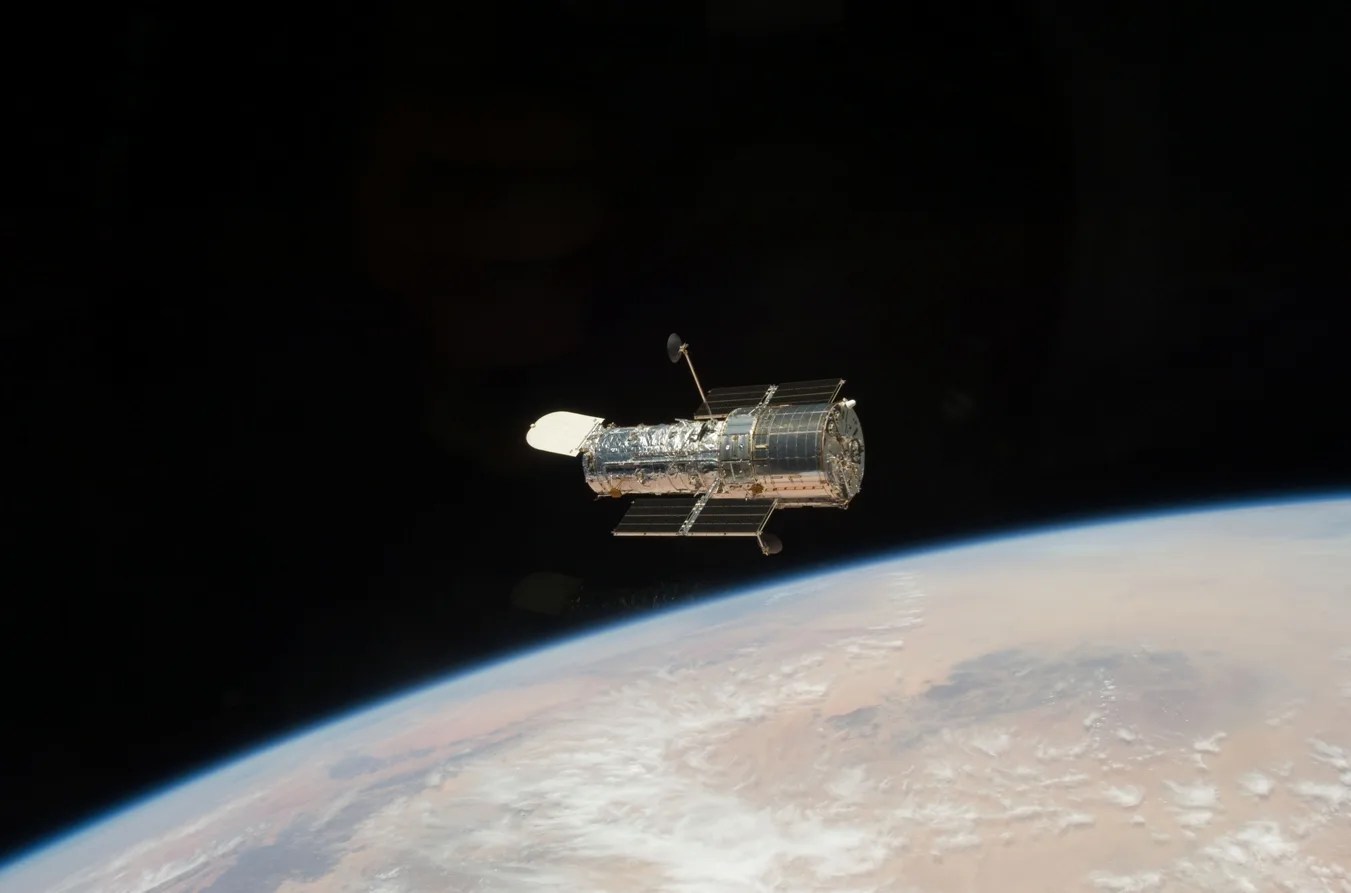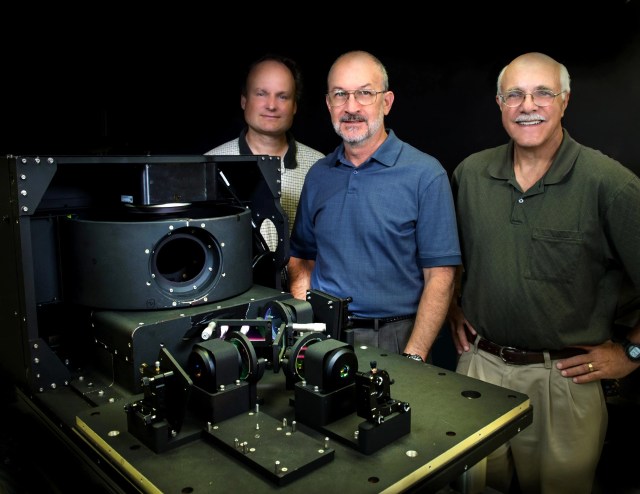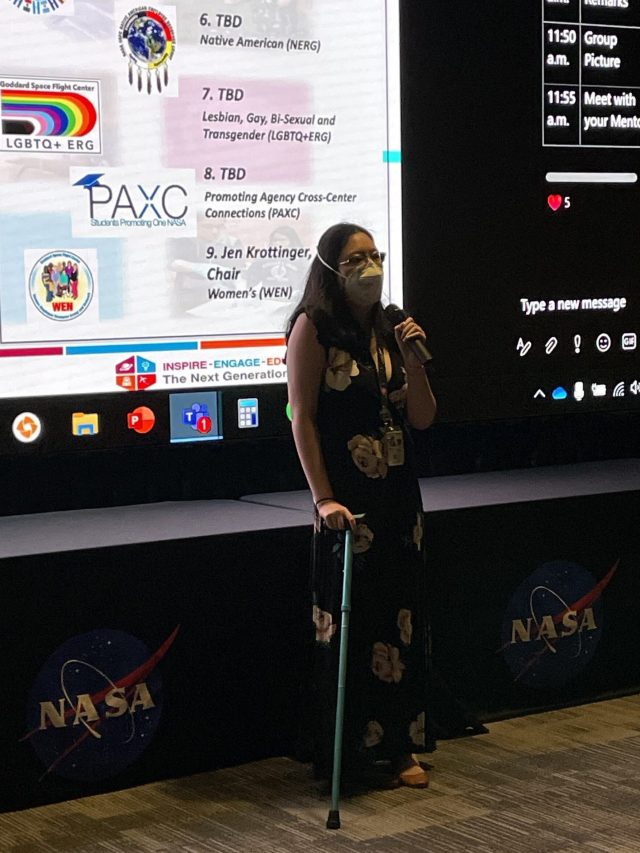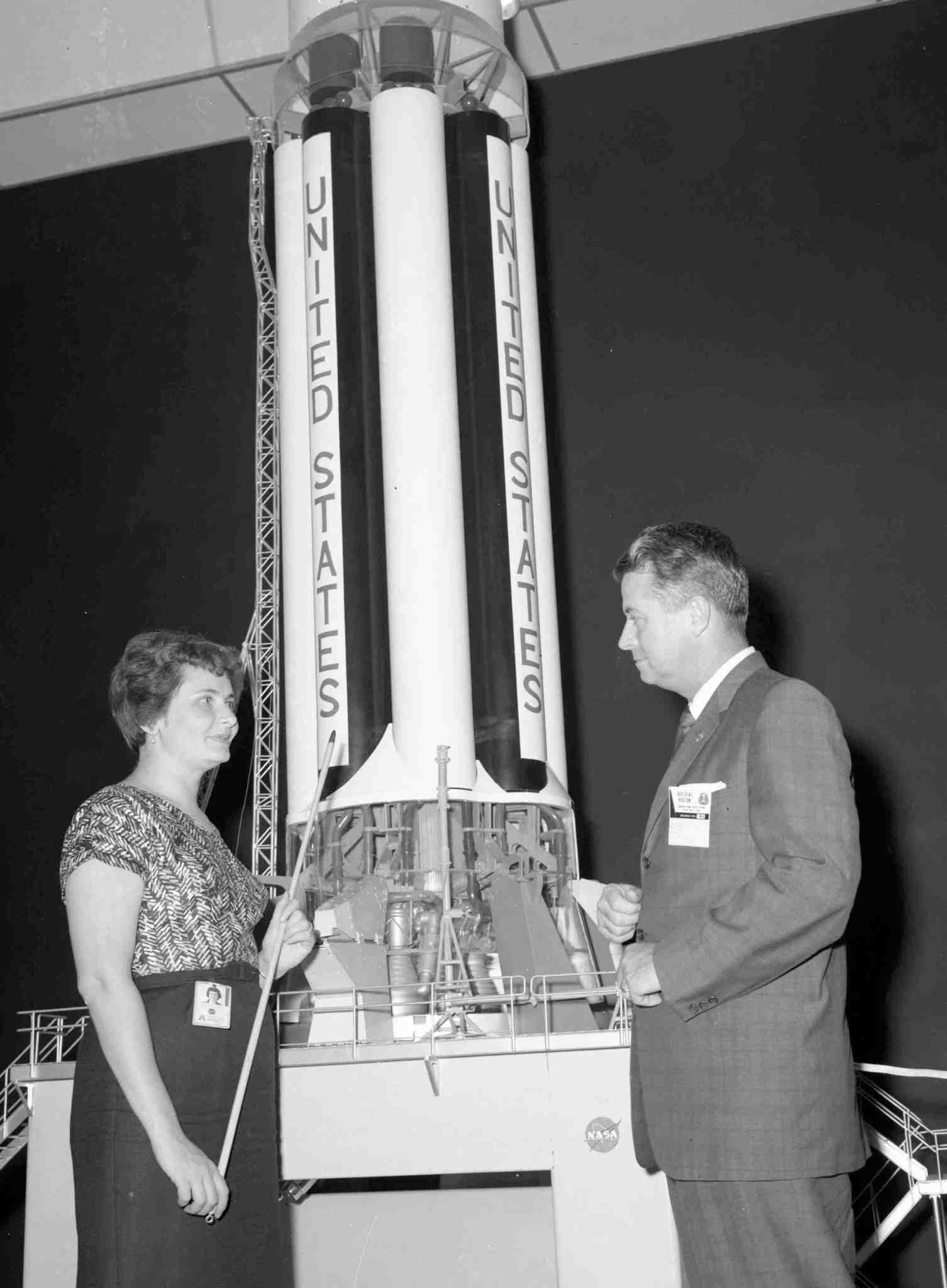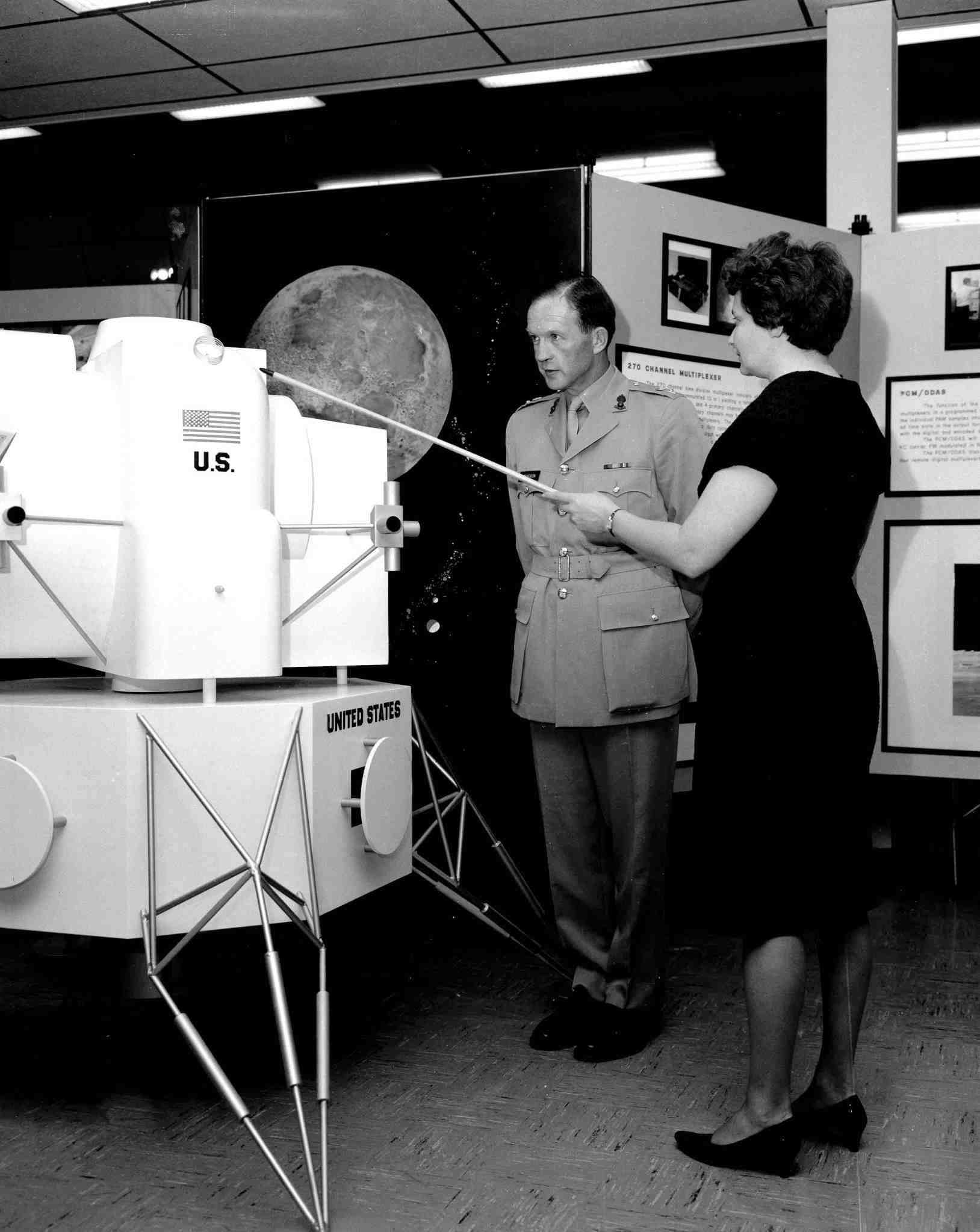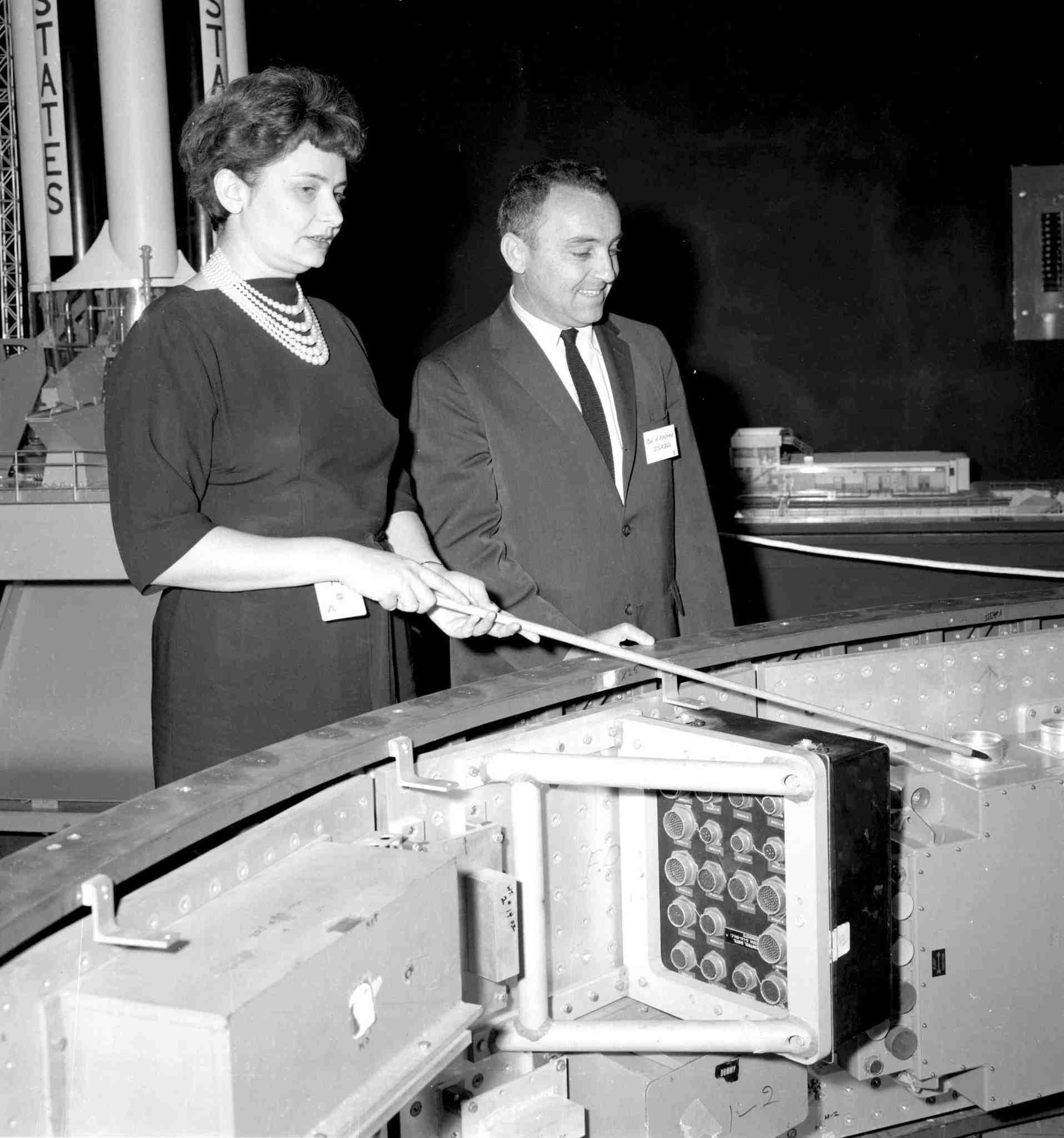Born in Gainesville, Georgia, Evelyn Falkowski spent an incredible career working in both public history and civil rights. Falkowski held a law degree from the John Marshall Law School in Atlanta, Georgia and was a member of the Georgia Bar Association. Early in her career, Falkowski worked with the Civil Service Commission in Washington, D.C. before her husband, Ed Falkowski, was transferred to rural Iowa for work with the Rural Electrification Administration. In 1958, the couple eventually made their way to Huntsville, Alabama where Ed worked as an electrical engineer with the Army on Redstone Arsenal.
Falkowski started work at NASA’s Marshall Space Flight Center in March 1962, accepting a position as an historian. While her work also included compiling the illustrated chronology of Saturn program development, Falkowski’s primary responsibility was as curator at the Marshall Space Orientation Center (SOC) – the museum which opened in February of 1963 and was the forerunner to the U.S. Space and Rocket Center. Located in Building 4471 and operated by the Historical Office, the SOC housed exhibits consisting of rocket engines, nose cones, and scale models of satellites and rockets including the full-scale models outside the building in Rocket Park.
Along with Paul Satterfield, Falkowski was assigned the task of gathering material and working with artist and illustrators to develop exhibits for the SOC. A brochure from the era declared the SOC home to “some of the world’s most historic rockets and many other tools of space flight,” a place which allowed visitors to “share in the exploration of space.” Each year more than 200,000 visitors from Huntsville and around the world came through the doors of the museum to take in the latest and greatest advances in the space program.
While in Huntsville, Falkowski also became active in the civil rights movement working primarily with the Huntsville Council on Human Relations, the bi-racial group fighting for equal rights in the city. As early as 1958, Falkowski argued that segregation was simply “unethical” and “unbrotherly” – a “moral wrong” that ought to be ended immediately. In her position as chair of that group’s employment committee, Falkowski worked with volunteers examining local job conditions and observing what happened to Alabama A&M University graduates. She also explored how Civil Service regulations and local organized labor organizations impacted the employment of minority groups in the aerospace industry and beyond.
Falkowski’s involvement in civil rights activism came at great personal risk as she often noted how many of her friends in Huntsville pleaded with her not to air her stance on segregation out of fear of “exposing her children to danger and ostracism.” Falkowski once explained that the Council served as “more of a voice than a power” and noted that the climate of civil rights gradually improved over the previous five years leading many activists to feel “reasonably well accepted” by 1967.
Falkowski’s career also reflected the pressures – then and now – women felt to choose family over profession. Falkowski once remarked that while she believed family should be of central importance in a woman’s life, she didn’t “think it should be all, any more than it is all in a man’s life.” Falkowski argued that with or without a career, it took “discipline and remembrance of principle” to keep that part of the world “whose needs are less visible to us” in the forefront. Falkowski certainly lived up to that principle in her own life.
In 1968, Falkowski left Marshall to serve as an investigator, then managing director for the Equal Employment Opportunity Commission’s Southern Regional Office which encompassed Alabama and Mississippi. Later in life, Falkowski moved back to Washington, D.C. where she became Executive Director for the United Nations Association/National Capital Area (UNA-NCA) – an organization founded in 1953 and dedicated to strengthening the relationship between the United Nations and the United States government. Today, the organization has an annual volunteer service award given in Falkowski’s name. While in D.C., Falkowski also participated in the Women’s Democratic Club and Organization of University Women.
Working at the intersection of Apollo and the civil rights movement placed Evelyn Falkowski on the front lines of two of the most transformative events of the twentieth century. Through her work as both public historian and social activist, Falkowski made valuable, lasting contributions at Marshall, Huntsville, and beyond.


